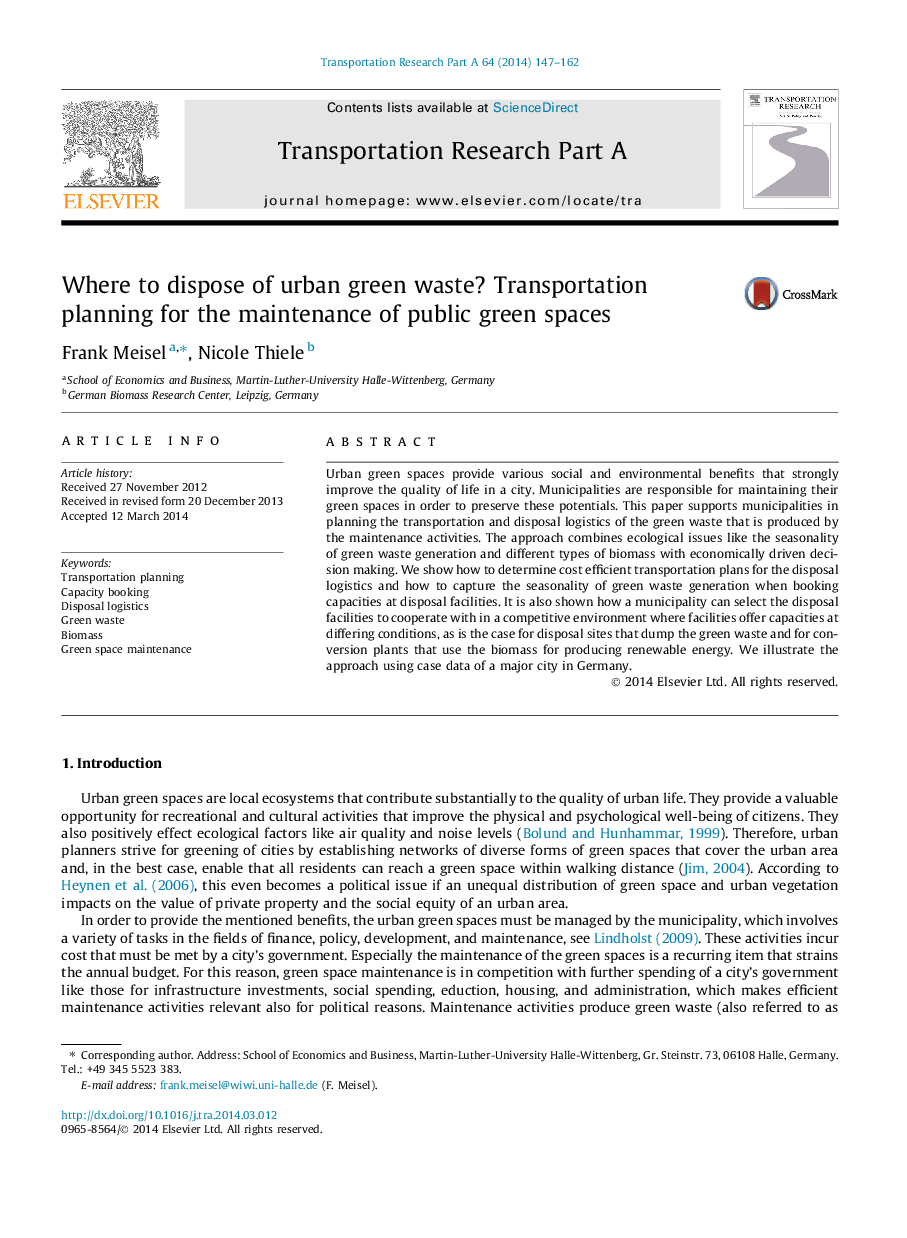| Article ID | Journal | Published Year | Pages | File Type |
|---|---|---|---|---|
| 6781788 | Transportation Research Part A: Policy and Practice | 2014 | 16 Pages |
Abstract
Urban green spaces provide various social and environmental benefits that strongly improve the quality of life in a city. Municipalities are responsible for maintaining their green spaces in order to preserve these potentials. This paper supports municipalities in planning the transportation and disposal logistics of the green waste that is produced by the maintenance activities. The approach combines ecological issues like the seasonality of green waste generation and different types of biomass with economically driven decision making. We show how to determine cost efficient transportation plans for the disposal logistics and how to capture the seasonality of green waste generation when booking capacities at disposal facilities. It is also shown how a municipality can select the disposal facilities to cooperate with in a competitive environment where facilities offer capacities at differing conditions, as is the case for disposal sites that dump the green waste and for conversion plants that use the biomass for producing renewable energy. We illustrate the approach using case data of a major city in Germany.
Related Topics
Physical Sciences and Engineering
Engineering
Civil and Structural Engineering
Authors
Frank Meisel, Nicole Thiele,
